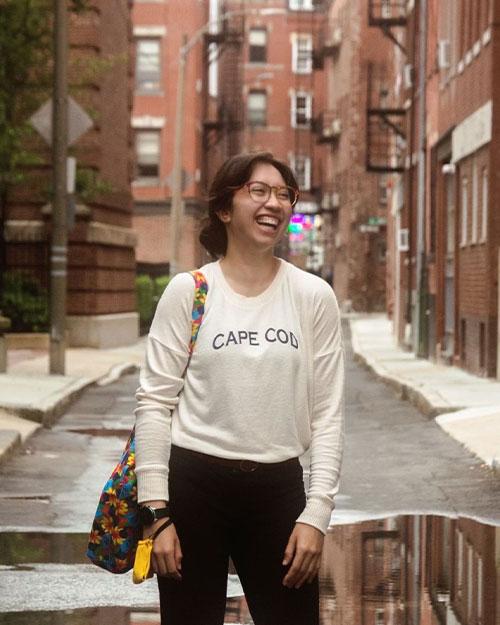Instructor Spotlight: Nicole Keyton

Tell us about your background and what inspired you to teach this course
I work as an assistant editor at Beacon Press, which is a small independent publisher of narrative and nonfiction of public interest based in Boston. I also edit fiction for an online literary journal called Vagabond City Lit, where we publish short works of fiction, nonfiction, and poetry once a month.
I was inspired to teach this course based on my own experience as an undergraduate student when I took a publishing course called “Literary Editing and Publishing” to complete my minor. In that class, I learned so much about publishing from the vantage point of how creative writers and editors navigate an industry predicated on the delicate balance of profiting off of books to make more books of cultural value.
Knowing now that my current class includes many creative writers and English majors, I find it essential to remind folks that publishing is spoken of as a unique business—a “labor of love” if you will—while artistic integrity often gets compromised. What makes a good book? What does a book add to a moment’s cultural or historical value? Whose voices do we get to hear from, and why are others not as “interesting” to publishers that have been historically staffed by a majority of affluent white men who live in New York? There are so many decisions behind that physical manifestation of an author’s words on your shelf that we as consumers aren’t often aware of. The more we demystify publishing, the more informed and intentional our choices are. As readers and consumers, we have more power than we think!
What’s something we should be considering when thinking about the current state of publishing?
Although it’s becoming exhausting to talk about AI, we totally should! One main theme in my class this semester centers on authorship and the underlying meaning behind what it takes to publish a book in the traditional sense.
We as humans have seen book publishing evolve over centuries with technological advancement. Stories told through cave paintings and theatrical plays provided hunting and survival strategies and lessons to learn from our mythological heroes.
With the coming (and present) integration of AI systems in our daily lives, we should be more actively interrogating ourselves and the networks with which we interact how this technology can be used not at the expense of human labor in the arts, but in accordance with such laborers. If the evolution of the author comes from technological advancement such as the printing press, what possibilities as storytellers lie ahead of us? Writers, actors, and visual artists honing their craft have experienced firsthand throughout history how their work can be manipulated without their consent—what does this new era mean for cultural engagement and how we value artists? How do we safeguard the professions of those who work in the labor of love? I ask my students these very hard questions not to find “the answer,” but to encourage these future leaders, writers, and entrepreneurs to envision a future of authorship they can fight for today.
You have some field trips to local spots: Porter Square Books, MIT Press, Candlewick, etc. What do you hope students will take away from these field trips?
I hope that students will find the New England area has a lot to offer in the realm of publishing: from education and trade nonfiction to children’s publishing and creative zine printing; from literary journals and online magazines to independent bookselling. There’s this unspoken understanding that if you want to “make it” in publishing, you have to move to New York City. While that was probably the case in the previous century, we have seen the industry grow and shift with the times. There are many more opportunities to work in publishing outside of NYC than you think. Independent publishers can be found in cities like Minneapolis, Chicago, Charleston, and Portland (and Boston!). Bookstores can exist as online-only marketplaces, or pop-up shops that can collaborate locally with brick-and-mortar retailers, book festivals, and event spaces. What matters most as a literary citizen in this expanding literary world is that you continue to facilitate a strong sense of community wherever you land.
Nicole-Anne Bales Keyton (they/she) is a writer based in Boston. Nicole received degrees in creative writing and film from the University of Massachusetts-Boston and Virginia Commonwealth University, and is a Kundiman Fellow. Nicole works in book publishing and is the fiction editor for the online literary journal Vagabond City Lit. Their writing can be found in So to Speak, Breakwater Review, and at hintoflibrary.com.